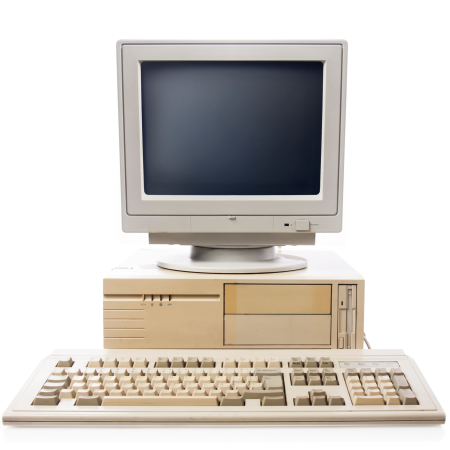The history of computers is a fascinating tale of human innovation and progress, reflecting our ever-growing desire to solve complex problems, enhance productivity, and stay connected. From the colossal machines of the mid-20th century to the sleek, powerful devices we use today, computers have come a long way in a relatively short period. In this article, we will explore the remarkable evolution of computers, examining key milestones, technological advancements, and the ongoing impact these digital powerhouses have on our lives.
A Brief History of Computing: Key Milestones
The journey to modern computing began long before the invention of what we now recognize as computers. Early mechanical devices, such as the abacus and the slide rule, laid the groundwork for more advanced computing machines that would emerge centuries later. Some of the most notable milestones in the history of computers include:
-
Charles Babbage's Analytical Engine (1837): Often considered the "father of the computer," British mathematician Charles Babbage conceptualized a sophisticated mechanical computer capable of performing calculations and storing results. Although never fully realized, Babbage's Analytical Engine is regarded as the first general-purpose computing machine.
-
ENIAC (1946): The Electronic Numerical Integrator and Computer (ENIAC) was the first large-scale, electronic digital computer. Developed during World War II, this room-sized machine was used to calculate artillery firing tables and marked a significant leap forward in computing technology.
-
The Transistor Revolution (1947): The invention of the transistor by Bell Labs researchers John Bardeen, Walter Brattain, and William Shockley dramatically altered the landscape of computing. Transistors replaced vacuum tubes, paving the way for smaller, faster, and more energy-efficient computers.
-
The Microprocessor (1971): The development of the microprocessor, a single integrated circuit that could perform multiple tasks, further accelerated the miniaturization and democratization of computing. This breakthrough enabled the creation of personal computers, making them accessible to a wider audience.
The Personal Computer Revolution
The 1970s and 1980s witnessed an explosion of personal computer development, with companies like Apple, IBM, and Microsoft leading the charge. These early personal computers transformed the way we work, learn, and communicate, bringing computing power to homes and businesses around the world.
As personal computers became more sophisticated, the internet emerged as a global network connecting millions of devices and users. This connectivity gave rise to a new era of computing, with the World Wide Web, email, and social media becoming integral parts of our daily lives.
The Modern Computing Landscape
Today's computers are a far cry from the room-sized machines of the past. Advances in hardware, software, and networking have led to the development of sleek, ultra-powerful devices capable of performing tasks that were once unimaginable. Some of the most significant developments in modern computing include:
-
Mobile Computing: The proliferation of smartphones, tablets, and laptops has untethered us from traditional desktop computers, enabling us to access information, communicate, and work from virtually anywhere.
-
Cloud Computing: The shift towards cloud-based services and storage has transformed the way we interact with and manage data, providing users with greater flexibility, scalability, and security.
-
Artificial Intelligence: The integration of artificial intelligence (AI) and machine learning algorithms into computing systems has unlocked new levels of automation, efficiency, and personalization, revolutionizing industries from healthcare to entertainment.
Conclusion
The evolution of computers is a testament to human ingenuity and our relentless pursuit of knowledge and progress. As computers continue to advance, becoming ever more powerful and interconnected, we can only imagine the possibilities that lie ahead. Innovations in quantum computing, virtual reality, and the Internet of Things (IoT) are already hinting at a future where computers will play an even more integral role in shaping our lives and the world around us.
As we look forward to this exciting future, it's essential to recognize the importance of digital literacy, cybersecurity, and equitable access to technology. Ensuring that individuals across the globe can harness the full potential of these digital powerhouses will be crucial in promoting social and economic development and addressing the challenges of the 21st century.








